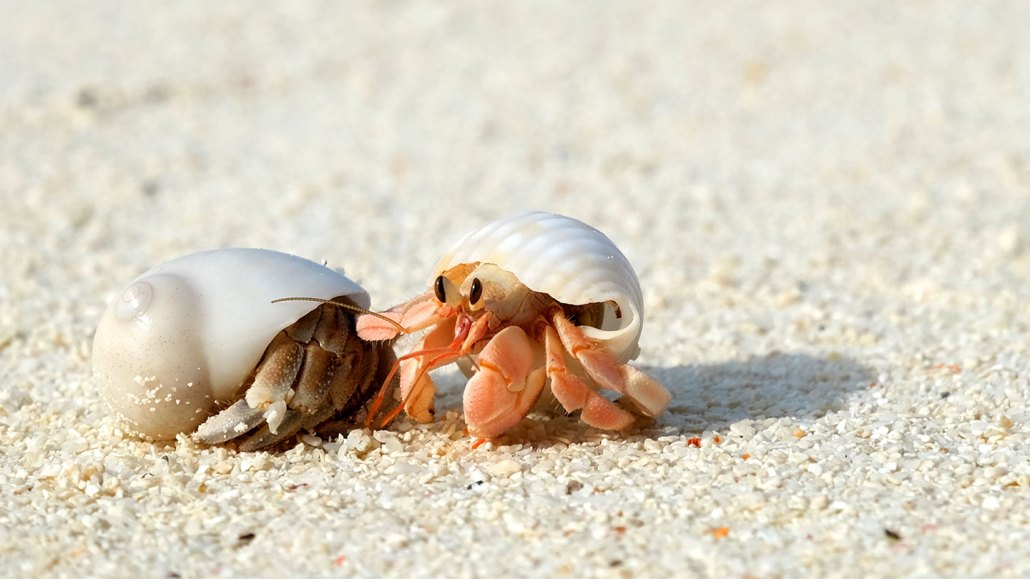Questions for ‘Invertebrates are pretty clever, but are they conscious?’

Experiments with hermit crabs and other invertebrates have led some scientists to believe these animals exhibit evidence of consciousness.
Sophie Dover/iStock/Getty Images
Share this:
- Share via email (Opens in new window) Email
- Click to share on Facebook (Opens in new window) Facebook
- Click to share on X (Opens in new window) X
- Click to share on Pinterest (Opens in new window) Pinterest
- Click to share on Reddit (Opens in new window) Reddit
- Share to Google Classroom (Opens in new window) Google Classroom
- Click to print (Opens in new window) Print
To accompany ‘Invertebrates are pretty clever, but are they conscious?’
SCIENCE
Before Reading:
- What does it mean to be conscious of something?
- Do you think an animal like a cat or dog can have consciousness? What about a spider or a worm? In each case, say why or why not.
During Reading:
- What body part do invertebrates lack? What percentage of the world’s animals are invertebrates?
- List two terms researchers have used to help define consciousness — and what each term means.
- What is a reflex? How does a reflex differ from a deliberate behavior?
- In Barry Magee and Robert Elwood’s study of hermit crabs, what trade-offs did the crabs have to weigh? In the researchers’ views, how did these results show that the crabs have sentience?
- In the 2011 study of honeybees, what bee behavior suggested that being shaken had changed how the bees felt? What physical evidence suggested that the shaking affected how the bees felt?
- What evidence did Stephen Buchmann use to argue that bees can become anxious?
- How did Rafa Rodríguez test spiders’ memory? How did he relate this outcome to intelligence?
- What does it mean for a behavior to be instinctive? How can scientists use instinctive behaviors to test animals’ consciousness?
- What evidence, from Björn Merker and other researchers, suggests that the cortex of the brain is not required to have consciousness? Which brain part does Merker instead suggest gives rise to consciousness?
- What is convergent evolution? What is one example of an animal behavior that shows convergent evolution?
After Reading:
- Rafa Rodríguez says that scientists must design experiments tailored to the species they’re studying. Imagine you have the task of determining whether a brand-new type of insect has consciousness. Describe at least three to five pieces of information about the insect you would want to know to be able to design an experiment to test this. (For ideas, you can look at what Rodríguez says in the last section of the story.)
- In the story, Marlene Zuk suggests we may never know for sure if invertebrates have consciousness. Describe some of the limitations researchers face when trying to gauge consciousness in animals that are very different from people. Use evidence from the story to support your answer. Then, state your opinion about whether you think it will ever be possible to know for sure if animals very different from us — such as flies or spiders — have consciousness. Describe why or why not.